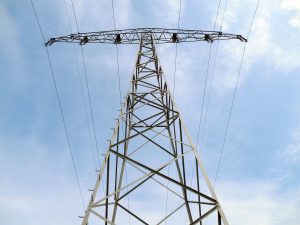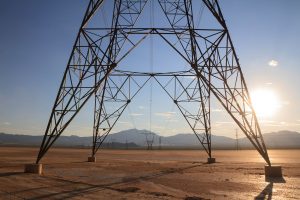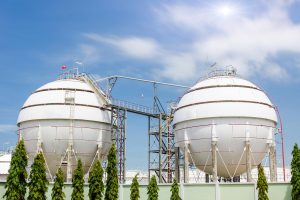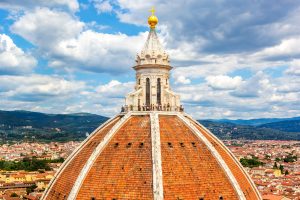This new training course on the Regulation and Integration of Renewable Energy provides a comprehensive introduction to the topic with the latest updates, including developments in policy and regulation in the renewables industry and research.
The objective of this course is to carefully examine the current and future role of renewable energy as a fundamental element of a sustainable, competitive, and secure power industry, as well as the regulatory mechanisms needed to integrate RES in a liberalised electricity system.
The course will answer to the following questions:
What are the contracts-for-difference (CfDs)
The role and design of Contracts for Difference for a future-proof Electricity Market Design
Are contracts-for-differences here to stay?
Renewable energy sources are changing the paradigms of energy policy, regulation and market design. By now, all electricity-related initiatives, including supply, transmission, delivery and consumption, are directly or indirectly influenced by the expansion and integration of renewable energy.
As a result, market actors have to adapt their commercial strategies to new market conditions, system operators have to engage in a new collaboration, integration and balancing tasks, and policy makers and regulators must consider new support schemes, financial incentivisation and regulation activities in the path towards a carbon-neutral energy system. For this reason, every energy industry professional is now directly or indirectly involved with regulating and integrating renewable energy.
Based on praxis-driven lectures and through interactive discussion with renowned specialists and active group work, the course seeks to contrast current and future regulatory actions needed for the steady development and integration of renewable energy and their implications for the electricity markets and networks, underlying the importance of stronger coordination and cooperation between the various actors involved with the final aim of maximising the benefits of renewable energy deployment.
This training course takes its starting point in the EU, and its Member States, but its focus is not limited to the Old Continent: case studies from America, Africa and Asia will be presented, too.
After completing this course, you’ll be able to:
You’ll get a hands-on learning experience with:
The training is developed for:
No formal background on energy regulation is required. An educational background in engineering, economics or law is strongly recommended. The training is in English.
Following the success of the first edition, we are delighted to announce the 2nd FSR Alumni Day. This event provides former alumni with a special chance to reunite and remain informed about the latest policy advancements in their respective fields of study.
One of the sessions will be a continuation of the training on the Regulation and Integration of Renewable Energy course, scheduled for Friday, 25 October, in Florence.
Course Directors: Lena Kitzing, Mario Ragwitz
Renewable energy is set to dominate Europe’s energy landscape. However, there’s a pressing debate on whether the current electricity market structure adequately caters to the unique characteristics of renewable energy technologies. This session delves into strategies for better alignment between renewable energy traits and electricity market design. Should we overhaul market frameworks to suit these new characteristics? Or should we tweak renewable energy projects for smoother integration into existing markets? Perhaps a combination of both, or entirely different approaches? We’ll delve into enhancing market integration, discussing methods to improve decision-making and flexibility in renewable energy projects. This includes smart contract designs and support schemes, along with sector coupling options to enhance the value of variable renewable technologies in the market. We’ll also explore how a multi-criteria approach can better select projects for system and market integration. Lastly, we’ll examine whether innovative electricity market designs can alleviate current integration challenges faced by renewable energy technologies. Throughout, we’ll highlight the synergy between renewable energy policy and electricity market design, and its connection to other energy markets.
Fees
Cancellation Policy
Paid registration fee is non-refundable. However, registrant substitution may be made up to 20 days before the course’s start date.
Please arrange your travel and accommodation as soon as possible as Florence is very popular in this period.
Please note that the course fee does not cover travel and accommodation costs.
This is a fully residential training course, and classes will be held in Florence on 22-24 October 2024.
By submitting your application, you are committing to pay the corresponding fee.
Event venue
Sala Cappella
Villa Schifanoia,
Via Giovanni Boccaccio 121,
I-50133 Firenze – Italy
Local transportation
Villa Schifanoia is easily reachable by taxi from Florence centre or from Fiesole (about 20€) and from Florence Airport (about 35€).
If you prefer public transport (ticket 1,50€ to be bought in official ticket offices, machines and authorised retailers that display the Autolinee Toscane sticker):
Or:
FSR’s training on the Regulation and Integration of Renewable Energy will provide a comprehensive and detailed view of the European regulatory framework for the integration and development of renewable energy from top European experts.
Join us for a unique opportunity to reconnect and stay updated on the latest policy developments in the fields you previously studied.
LEARN MORE AND REGISTER
EU Electricity Network Codes & the Clean Energy Package Enter the world of electricity markets in Europe ‘Evolution of electricity markets in Europe’ is an 9-week online course in collaboration…

Crafting research with impact on energy policy and regulation LARS is a residential training addressing researchers with modeling skills who are keen to support the energy policy and regulatory debate.…

Regulation of energy utilities All you need to know in one professional course With the Annual Training on the Regulation of Energy Utilities, you will gain extensive knowledge of the fundamental principles of…

Digitalisation is transforming transport and mobility. Understanding the regulatory implications of digitalisation requires knowledge of EU digital law and policy (DSA, DMA, Data Act) and the regulatory strategy in transport…

Learn how to master electricity markets and key issues around their reform The energy crisis that was triggered by the Russian war in Ukraine has led European power markets to…

This new training course on the Regulation and Integration of Renewable Energy provides a comprehensive introduction to the topic with the latest updates, including developments in policy and regulation in…

Understand the basic principles and most topical issues of gas sector regulation in Europe and worldwide Building on our flagship ‘Specialised Training on the Regulation of Gas Markets’, this new…

This FSR-ACER residential course in Florence covers the scope of the EU Regulation on Wholesale Energy Market Integrity and Transparency (REMIT) and the way in which it is implemented. Mapping…

Learn the fundamental regulatory principles of the electricity and gas sectors through hands-on, real case activities and examples with instructors from national regulatory authorities from Europe and North America, the…
To meet, discuss and learn in the channel that suits you best.